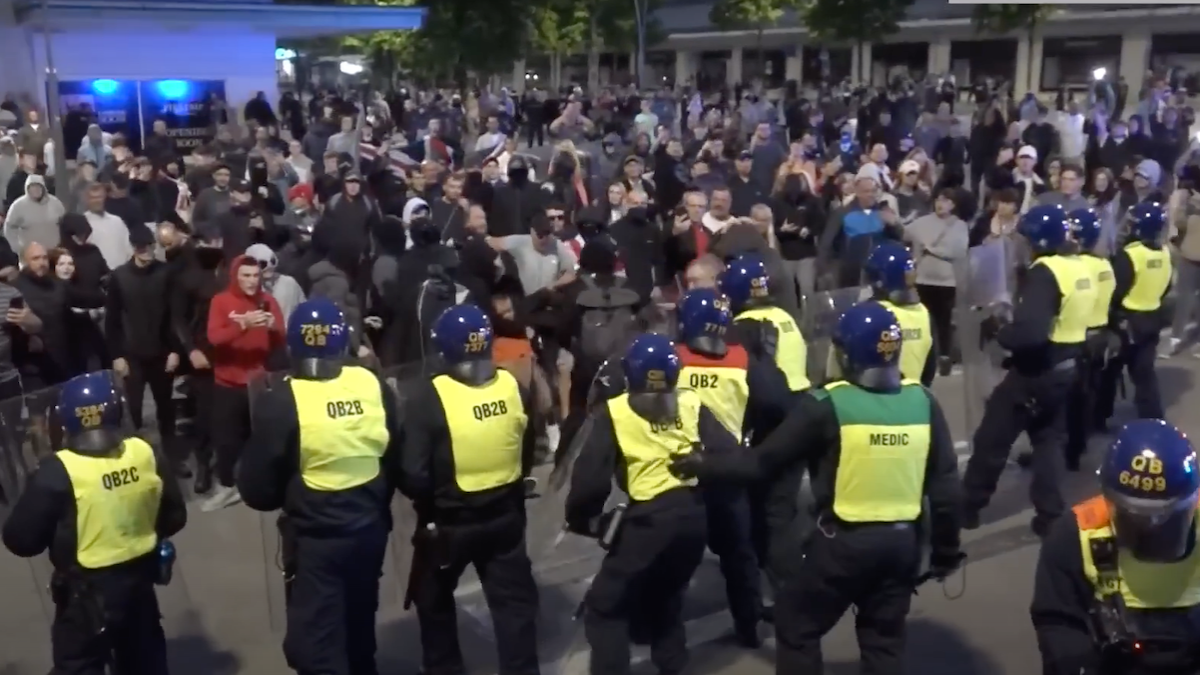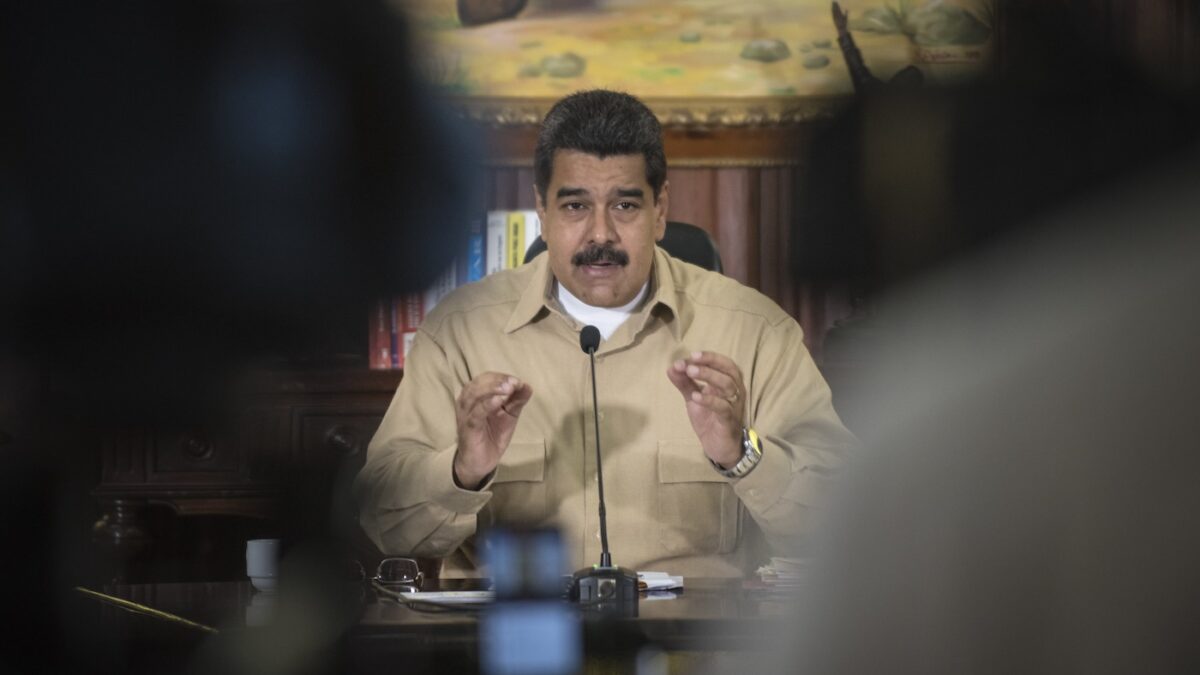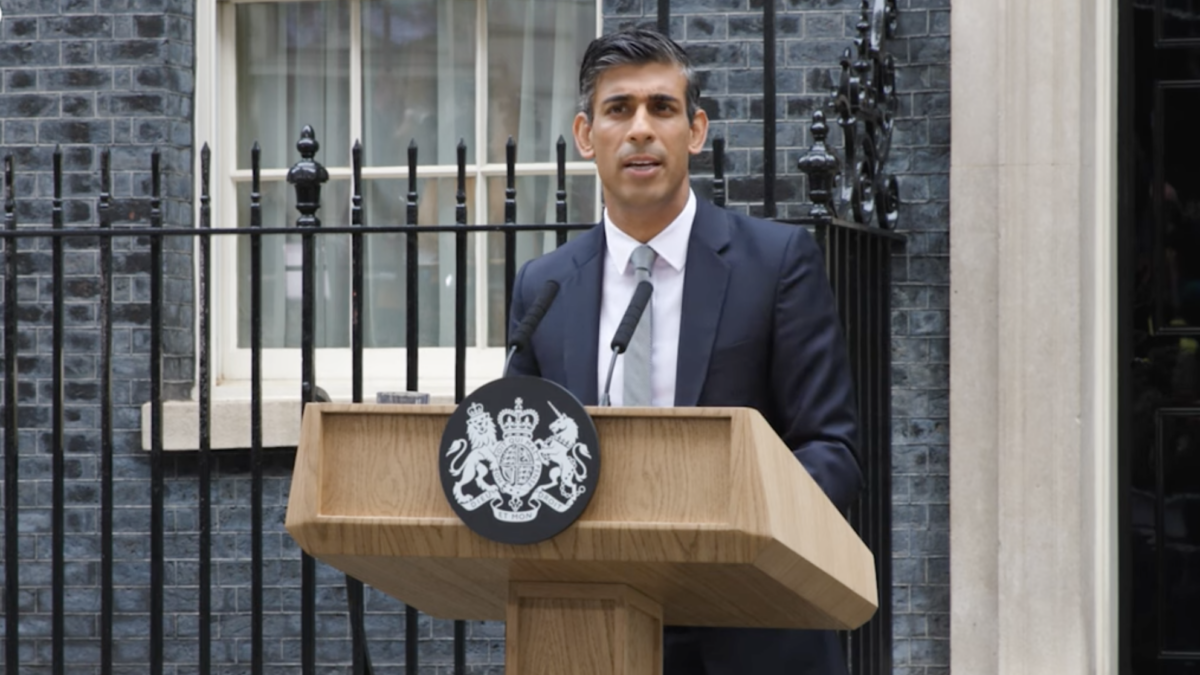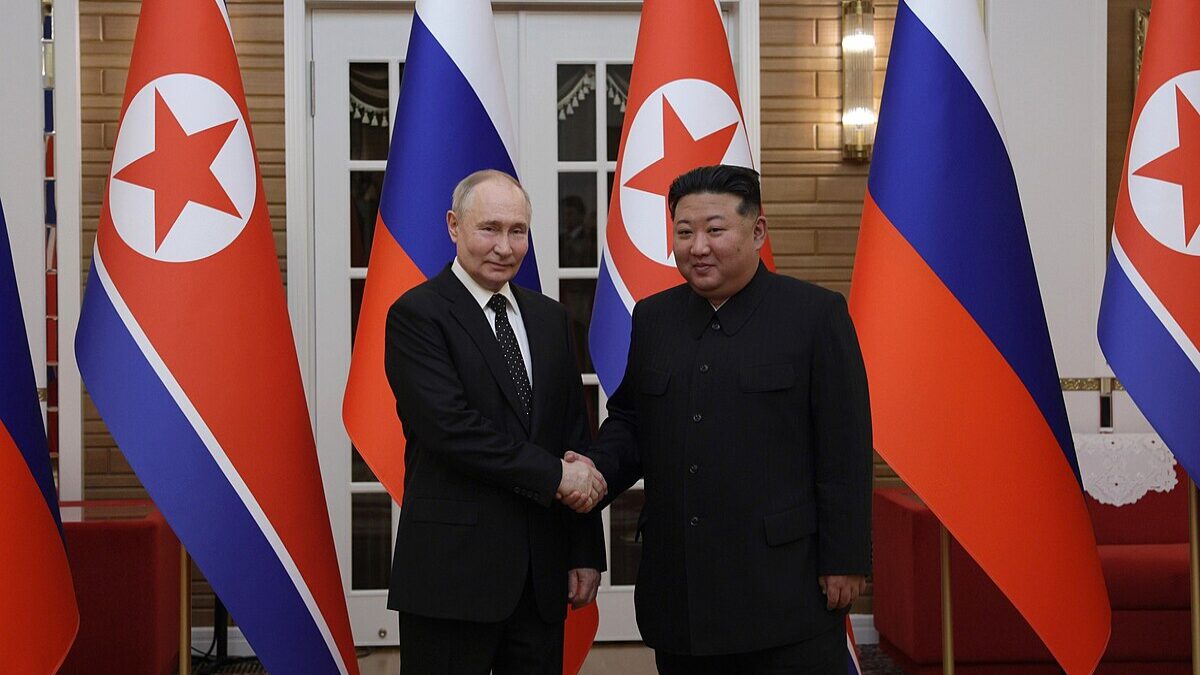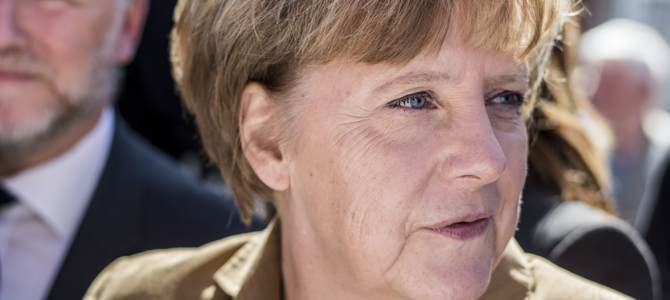
On Monday, German politician Horst Seehofer gave Chancellor Angela Merkel an ultimatum: she has until June 28 to create a compromise on immigration policy. Merkel enacted an “open-door” policy for Syrian asylum-seekers in 2015 after the onset of the Syrian civil war. Since then, more than 1.4 million foreign citizens crossed into the country, overwhelming Germany’s social services.
Seehofer, a member of Merkel’s sister party, the Christian Social Union (CSU), opposed the open-door policy from the beginning. Last week, he offered his “migration master plan.” The plan would have blocked asylum seekers who lack identification, have been refused asylum before, or have already registered in another European Union country. Merkel refused to support the plan, and in turn, Seehofer gave her a deadline.
In response to the influx of migrants, many European countries have swung right. First, England left the European Union in 2016. Then, anti-immigration candidates in the Czech Republic, Austria, and Italy won their countries’ highest offices. Although she ultimately lost, France entertained right-wing Marine Le Pen in their most recent election.
Even Germany hasn’t been immune to what many have called a wave of European populism. The far-right party Alternative for Germany (AfD) upset what was supposed to be a sweep for Merkel and her party in November of 2017, the Christian Democratic Union (CDU), and became the third-largest political party in Germany. Despite all of this, Merkel continued open-door immigration. With her hands resting in her trademark diamond position, she calmly said, “Wir werden es schaffen.” “We will make it.”
Now, with only two weeks to find common ground, it’s uncertain if Merkel will be the chancellor to see Germany through its immigration crisis.
Germany operates on a parliamentary system. If one political party does not have enough seats to govern, it must enter a coalition with smaller parties. Traditionally, the CDU has joined with the Social Democratic Party (SDP). However, after the SDP’s poor showing, many within the party were reluctant to form an alliance with the CDU again. Five months later, the two parties came together to create their “Grand Coalition” once again.
Now the fate of the Grand Coalition lies in Merkel’s ability to compromise with the CSU. If Merkel fails to make one before the deadline, the CSU could leave their longstanding partnership with Merkel’s party, ending their coalition’s majority in government and the two parties’ decades long partnership. This would likely result in a crisis of confidence vote, which would end Merkel’s 13-year tenure as chancellor.
While dealing with immigration controversies of his own, President Donald Trump took to Twitter Monday morning to comment on Merkel’s ultimatum.
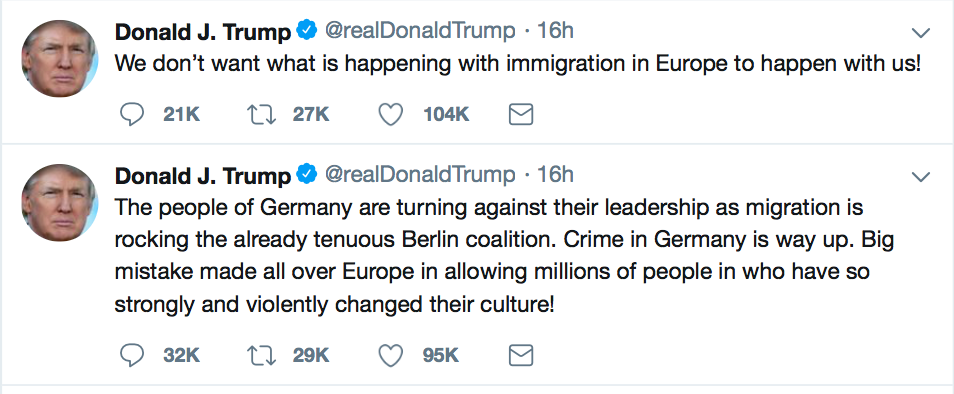
“We don’t want what’s happening in Europe to happen to us” is justification for Trump’s zero-tolerance policies. Especially in the wake of the administration separating children from their parents due to illegal U.S. entry, the president is grasping for ways to make his controversial policies more palatable.
This kind of justification has been enough for many Americans. Although crime is at a 25-year low in Germany, stories of migrants sexually assaulting girls and groups of women grip the headlines. The German people are struggling to help more than a million people assimilate, almost all from the Middle East, to Western culture. Germans worry that their working class is not enough to support an aging population and a wave of migrants. Many Americans cite these as reasons to curtail immigration. However, many Germans have welcomed refugees in spite of knowing these things firsthand. Why?
In Germany, there’s a phenomenon known as “Vergangenheitsbewältigung” which translates to “coming to terms with the past.” Post-World War II, the German people had to accept that their government had committed one of the most atrocious massacres in history while they either stood by or actively supported it. National pride disappeared, and deep shame took its place.
This guilt permeates German culture. It’s why one can only see German flags during the World Cup. It’s why Germans build giant memorials to the Holocaust in their capital. It’s why Germany has stood by Merkel’s open-door policy for the most part. This isn’t just a humanitarian effort; it’s atonement.
By accepting large swaths of migrants, Germany is attempting to do penance. Ever since they realized the extent of the horror they created and tolerated, Germans have sought redemption. Even now, polling shows that Merkel’s party still supports her work. Although the AfD now has a significant presence, Germany has resisted right-wing populism far more than its neighbors. There remains a strong sense of responsibility for the Syrian refugees, if only to make amends for the country’s past sins.
Merkel must find a way to reconcile Vergangenheitsbewältigung with Germany’s and Europe’s fiscal needs. Her deadline falls right before an EU summit where immigration is likely to be a contentious issue. Italy recently turned away a boat full of migrants. Poland has refused to accept refugees. Germany’s continuation of Merkel’s policy relies on the rest of Europe shouldering some of the burden. Merkel can only make that case from a united German government.
If she wants to meet Seehofer’s demands, Merkel can’t have Vergangenheitsbewältigung drive immigration policy in Germany. However, that guilt runs deep, and Merkel is determined to make it. Time will tell if she can come to terms with the present as well as the past.


